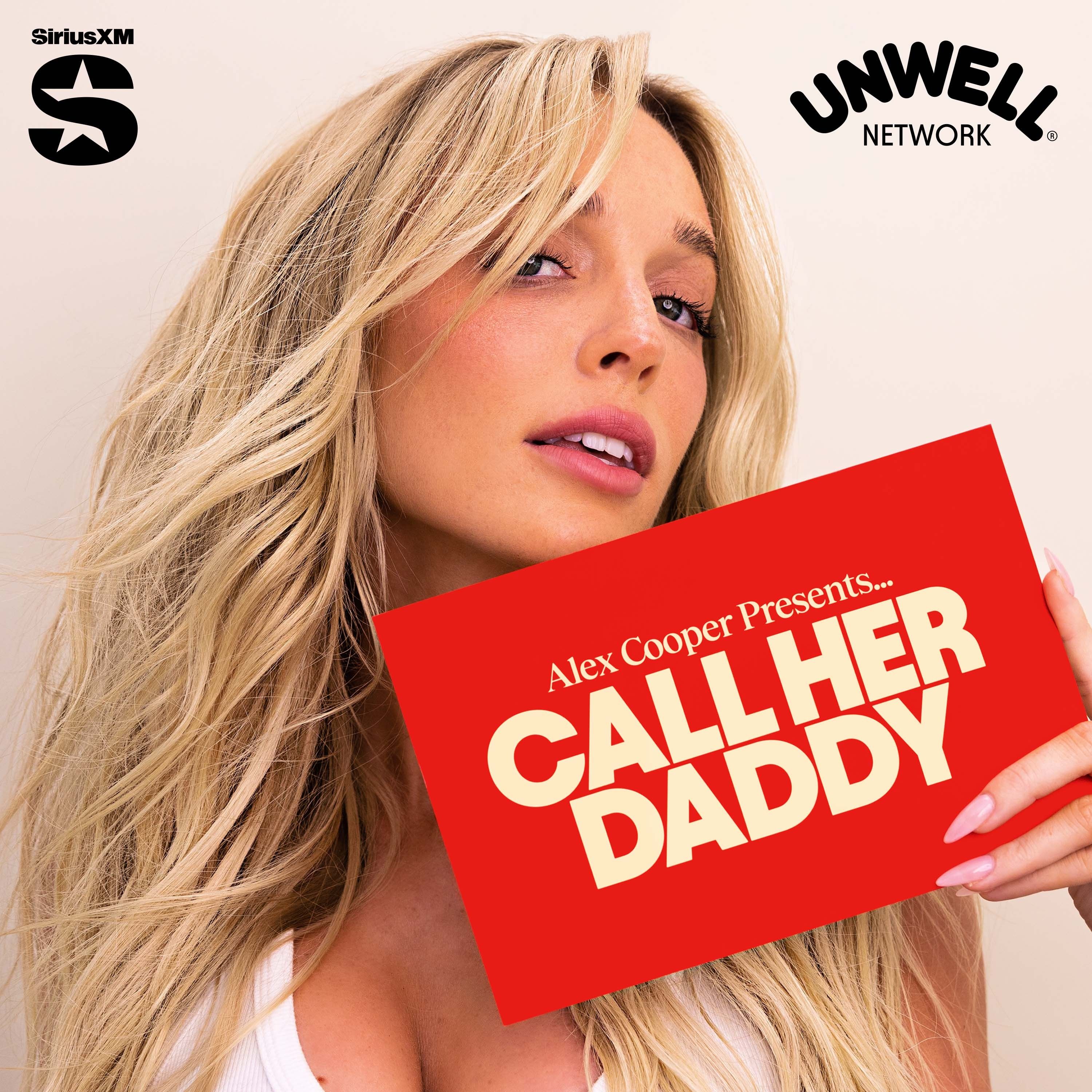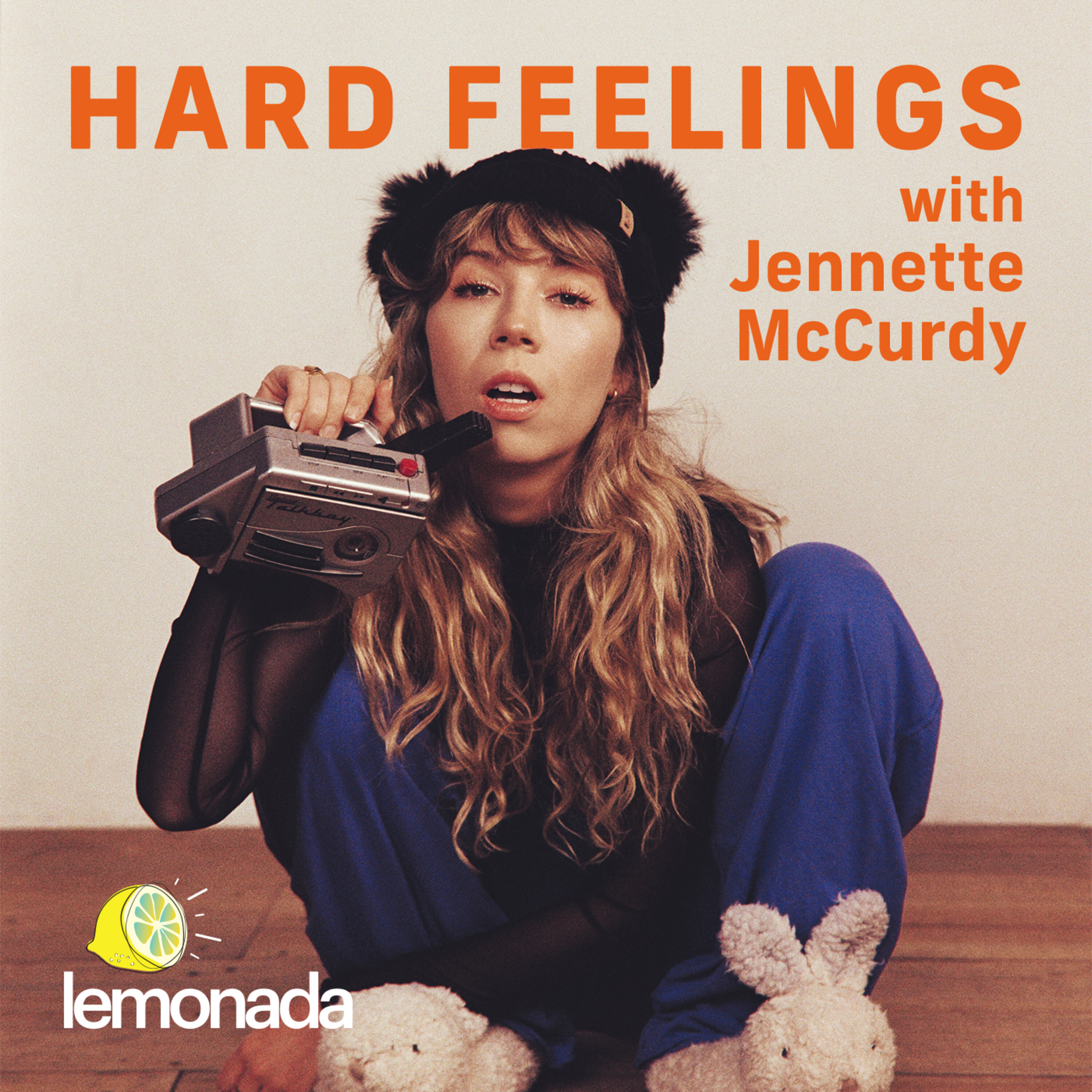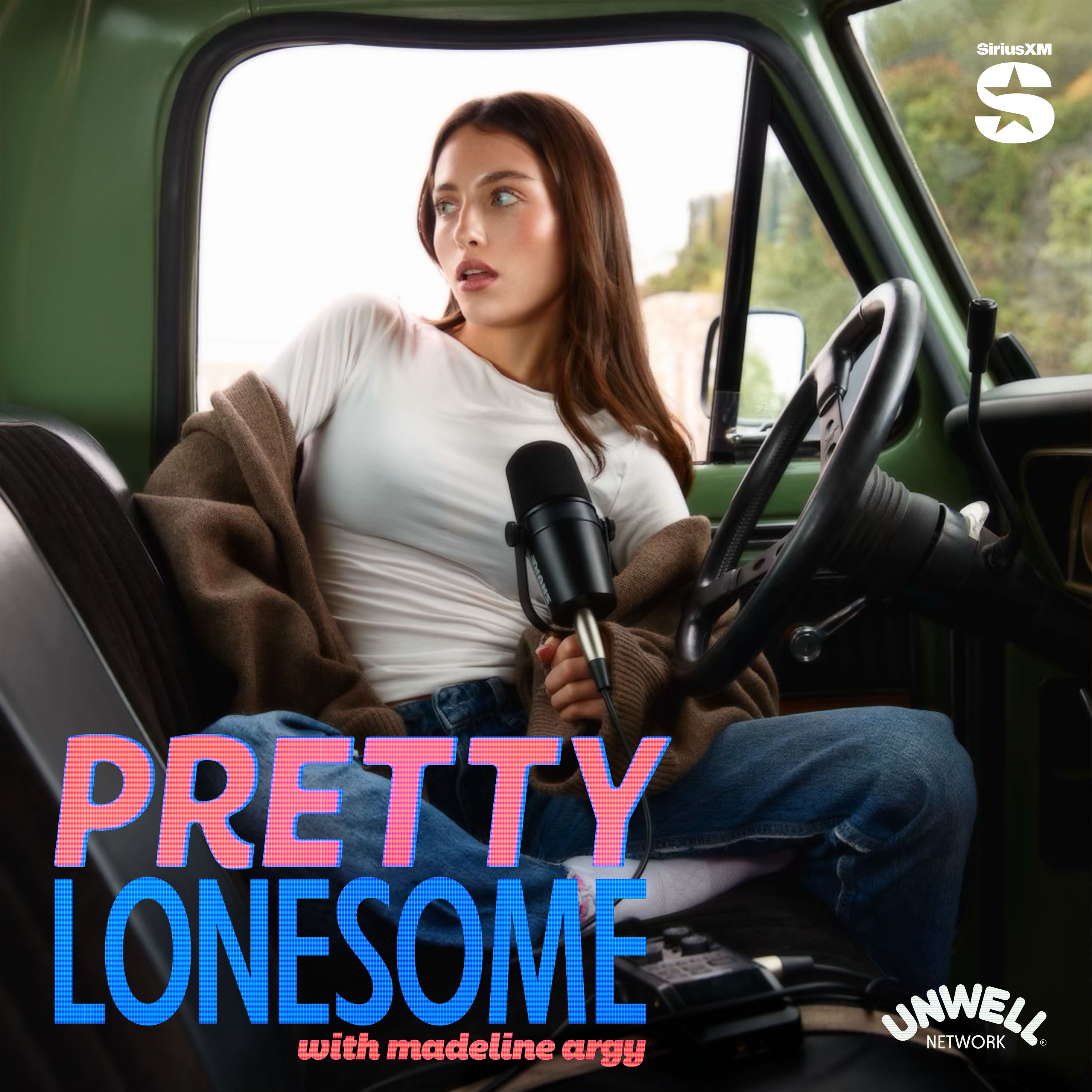
The Unrelatable Podcast
Hi, hello, it’s Hannah. Welcome to the space that’s dedicated to everything we don’t post about.. For the quiet heartbreaks, the big transitions, the over thinkers and the ones who feel too much—this is for you.
Thursdays are for deep dives—and Fridays? Random bonus episodes where I yap your ear off about current chaos, pop culture, and whatever else is living rent-free in my head.
If you’ve ever felt like the odd one out, you’re in the right place babycakes
Follow @unrelatablepodcast on Instagram to submit your stories and be part of the convo.
You can also find me over at @han.lanae and @hannahhlanae.
The Unrelatable Podcast
Finding Balance Between Self and Others
If there is one thing I'm guilty of... it's this. Seems that I'm not alone in it, as I have lots of stories to share about the depths of people pleasing and how to get out of the cycle it can create! Hope you enjoy <3
Ask a question or leave feedback! (anonymous)
Thank you so much for listening!
Submit Your Stories:
https://msha.ke/unrelatablepodcast#links-1
Follow The Show: https://www.instagram.com/unrelatablepodcast/
Follow My Socials: https://www.instagram.com/hlfeldt/
https://www.instagram.com/hannahfeldt/
For Bonus Episodes: https://www.patreon.com/TheUnrelatablePodcast
Ad:
Start your podcast today using Buzzsprout! A free podcast hosting platform, making it easy to share your podcast and post episodes. Use this link to receive a $20 credit when you sign up today: https://www.buzzsprout.com/?referrer_id=2221870
Hi. Hello. And welcome back to another episode of the Unrelatable podcast. I'm your host, Hannah Felt. And, today, we are going to be talking all about people pleasing and how to stop being a people pleaser.
I turn out to have a history of severe people pleasing, and I feel like a lot of you do too, especially if you're tuning into today's episode. I actually did an episode on the Fear of Being Perceived as one of my very first pod podcast episodes. And in that, I said that being people pleasers ends up creating a reality that is so untrue to yourself. And I talked about how when we were living in Corpus Christi, Texas a few years ago, I got over the fear of self expression, and I pierced my nose, and I was excited about life and all these things. And then I came back to Utah, and I was surrounded by people that essentially were like, no.
You gotta take out that nose ring. It's not a part of the culture that we're trying to have here. Anyways, you can there's more to that story in my past episodes, but I ended up this year in what what month was it? March? Yeah.
I think it was March. I repierced my nose. It is a septum piercing, and I'm still trying to figure out if it is me or not. You know what I mean? I like it a lot, but I think I'll like it more when it's super summery.
Right now, it is good weather, and then it's not good weather. Anyways, that doesn't even matter. Hannah, stop going on a tangent. But the point of that is that when you people please, you are not only doing yourself a disservice, but you're doing the people around you a disservice because you are not acting out of your true authentic self. And so, yeah, that's what we're going to talk about today is how to stop being a people pleaser.
With that, welcome back to the Unrelatable podcast. So today we have another Reddit series. I like the Ask Women series on Reddit, and today's is obviously going to be on how to stop being a peace a peaceful pleaser. No. We can still be peaceful.
But how to stop being people pleasers? Because I'm so sorry, but it is 2024. And if you're like me, you're probably in your early to mid to late twenties. Not me saying that I'm in my early twenties. Yeah.
You're if I'm assuming it if you're listening to this, you are in your twenties or you're in your thirties or entering your thirties, and that you are ready to kind of move forward from, I don't know, any habits that you might have, anything that is not serving you. And I like to say, my podcast, this is not a self help podcast, which is why I like to have you guys submit stories, which is why I like to read submissions on different Reddit posts because it's not really about me and what I wanna say about certain topics or just my experience. I like sharing other people's experiences because then it brings in topics. It brings in understandings that I might not even have in the first place, if that makes sense. And so, yeah, let's just jump right into it.
Also, I just wanna say, yes, I am still stuffy. I know we're going on episode 3 or 4 of me being stuffy, but I promise it won't last forever. It's just my allergies, and these are prerecording prerecorded. I'm recording this on May 6th since I'll be out of town for a little bit. But, hopefully, by the time that I actually come back and record some more episodes, I my voice will not be this way anymore because believe me, I am getting really sick of it.
But anyways, I digress. I feel like one of the biggest key motivators in people pleasing is avoiding communication, and it could be where both you and the other party avoid to communicate. But I definitely feel like that's something that lacks is you don't know how to voice your needs. You know what I mean? But the other thing is and I saw okay.
This is gonna feel like it's so out of out of the blue, but I saw this quote the other day about communication, and it said, if someone is upset with you, it's their responsibility to communicate that with you. Not your responsibility to constantly be trying to read them to figure it out. And I feel like that is where my people pleasing comes in so strong because when the group chat is asking where everyone wants to go to lunch, I'm not about to say, Wherever you guys want to go, that's perfect for me. No, I'm piping in 1 or 2 ideas Because if I don't put in my opinion, then we're probably, you know, I probably might just have a 25% shot that we're going there. But hey, I'm gonna say something that I like.
So that's not the type of communication or people pleasing that I struggle with. I feel like for me, it's more like the communication and the people pleasing of boundaries and not voicing my needs in that manner, and kind of just letting myself walk on eggshells, which we don't need to do that. You know what I mean? People pleasing shouldn't be in that type of realm at all. If somebody has a problem with the way that you dress or the way that you act or anything like that, they can use their words to tell you.
They can use their words to figure it out. Come on. We are all grown adults. The last thing that I should be doing, that you should be doing, is walking on eggshells and try not to rock the boat because that's just going to be detrimental for you and for us for all of us in the long run. You know what I'm saying?
Okay. Let's go ahead and jump into these submissions. Story number 1. Well, I guess this is not as much a story. It's more advice.
She says, learn how to argue and voice your needs. I used to always neglect myself to be there for anyone no matter what. And truthfully, it's rarely reciprocated, let alone even remembered. It's awesome to wanna help others and all, but at what cost? I used to simply agree because I felt like it was easier than starting a conflicting dialogue or that I'd be able to manage any negative impacts it might have on me.
Sadly, avoiding confrontation and accepting consequences to make everybody else happy will become a way to get taken advantage of and used. The hard part is the longer you let it slide, the harder it is to put your foot down in the end. I feel like this is so prevalent, especially in Utah, because, I mean, at least I was raised to always help others and that if you're unhappy, then to go serve and to do to do that. And I think, you know, helping others is great. That's fine.
But if it's coming at the cost of you, your mental health, then it's not something that's going to be helpful for you in the long run, obviously. She's not me repeating that same thing three times. But it's just something where if you're avoiding confrontation, learn how to be confrontational. Come on. Our late twenties, our thirties is about being confrontational.
No, I'm just kidding. I don't think that behaving in an angry or unfriendly way is the way to go. But I think avoiding people pleasing and avoiding voicing your opinion, yeah, that's going to end up making you feel unhappy in the end. This person says, I realized that the energy I give others is not reciprocated. You start to feel used and sort of lose autonomy when all you want to do is please others.
I'm still working on overcoming that, but I just hold my ground more. I'm more assertive, a bit more selfish, which is a good thing, definitely more outspoken with my needs, wants, and opinions. My confidence boosted big time, and that's when I started to change my people pleasing ways. It's a confidence thing. I feel like when we are happy within ourselves, we are less likely to want the approval of everybody else.
We are less worried about people misunderstanding us if we have an understanding of who we are in the first place. And that's been something that is hard because being misunderstood, being perceived outside of who you think you are doesn't feel good. It doesn't feel good. In fact, I got a story that was submitted to me, which was really, really good in this way. And she said, there was a time when I went to do an activity with some friends, and the parent of one of my not so close friends said, why didn't you invite my daughter?
That's so rude. However, I never meant to disinclude her daughter and really hadn't thought of inviting her simply because I'm not close to her. I felt hurt by how her mother assumed that I did what I did out of ill intent, and that can be hurtful. When people make assumptions that you're just trying to be rude and they they jump to conclusions, I think it's a jumping to conclusions that can really make us feel nervous and feel like we're going to be misunderstood. But at the end of the day, we have to realize that we are life we are the only perspective that we have on our own life.
Everyone else is looking in, and I know that that just sounds so, like, obvious. Duh, Hannah. We all know that. But it's so hard to remember. It's so hard to think that, okay, my mom has a different perspective of me than some random person I went to high school with, or my little sister has a different perspective of me than my little brother does.
And life being lived out with different siblings, For example, my youngest sister is 10 and a half years younger than me, and so she says all the time, Hannah, I'm so sad that I missed out on 10 and a half years of your life, and it makes me really sad. And I tell her, I'm like, you I'm so sorry that you I'm so sorry that that's stressing you out because she she just has so much compassion and so much love. And I'm like, yeah. It sucks. I wish I wish we could have been twins and that we could have been here for our whole life with each other that whole time just because she feels like she missed out on so much context of my life, my first ten and a half years of my life.
And we kind of have to think about that in terms of everybody else. People are looking with an outside lens on you. If they've never met you before or, let's say, they're a friend of a friend of a friend, they are going to have the most narrow perspective of you, and you just can't control that. And so even if you have good intentions, like the mother in the story that she submitted, she did have good intentions. You're just not going to be able to ever control the way that people conclude what you do.
You're never going to. Okay. This is the next story. Former people pleaser here. The realization that shook me was hearing that people pleasing is inherently manipulative behavior.
Don't say that. She says, as someone who associated myself with being kind, actually analyzing this behavior and seeing how it harmed how harmful it was to myself and my relationships made me want to change. People pleasing is something we often pick up as children when we're constantly exposed to a home difficult environment and have parents and caregivers who have their own unhealed trauma and addictions. Therefore, I thank my younger self for keeping me safe as that's what people pleasing helped me with back then, but I also acknowledge that its behavior isn't serving me anymore as an adult. 1st, I had to start by identifying why I wanted to overcome this.
For me, I just no longer wanted to hold resentment in my life, in any of my relationships with the people that I have in it, whether it be family, family members, friends, or partner. Reminding myself of that has made it so much easier to break out of the habit of people pleasing. Okay, guys. Bear with me. This one's a long submission.
I'm still we're so going. 2nd, seek out conflict within reason and get excited about it. At the heart of people pleasing, we want to keep the peace even if that means we get the short end of the stick. Here's the thing. We are all capable of handling conflict in a healthy way.
It's just that some of us need more practice with it than others do, especially if it wasn't properly modeled for us when we were young. It's going to feel uncomfortable as we maybe used to run from it, but have a trigger phrase when conflict arises and intentionally shift your mind away from your child self to your adult self before you respond. Doing this has been life changing, and the more you do it, the easier it becomes. 3rd, commit to discovering who you are. This is a long term process, but engaging in people pleasing can turn us into a shell of who we truly are.
It's not easy, but over time, it's possible to regain your identity. During this process, you'll also start to discover what your boundaries are. This is very important as learning to set and maintain boundaries is the single most impactful way to break away from the cycle of people pleasing. Now, your boundaries are always going to be received with open arms, especially when people are used to you being a people pleaser. This is okay.
This change can both strengthen and weaken the relationships around you. But ultimately, it's important for us to get very comfortable with being uncomfortable. It feels awkward at first, but the more that you put all of this into practice, the shorter that window of awkwardness gets. More importantly, the positives, like people being more respectful of you and your time, having deeper and more honest relationships, and not feeling as anxious with a heavy inside all the time, will begin to start to outweigh the temporary discomfort and make it all worth it. Whew.
I feel like that was that was an essay, and I love it. There was this concept that was brought to my attention a few years ago, and it is the rejection theory. And what the rejection theory is, is it's essentially practicing rejection. It is it is practicing feeling embarrassed to get over social anxiety and embarrassment and hurt feelings. And, essentially, I don't know if it was called this rejection theory or what it was called, but, essentially, this woman, she was talking about her experience, and she said that she would go up to people at the store and just ask them a ridiculous question about a product.
Like, hey, could I buy this? Let's say it was like a pack of 3 sets of makeup wipes at TJ Maxx. She'd bring it up to the front and say, hi. Would you be able to separate this pack so I can buy just one of them and not the bundle? And the clerk would just look and be like, no.
I'm I'm sorry. It comes in a pack of 3, and it's priced in a pack of 3. We can't separate it. But the whole point was to become more comfortable with rejection and to be able to not people please and constantly be over explaining yourself or under explaining yourself. Honestly, it can go both ways, and to not apologize over everything.
If I could tell you how many times I tell someone sorry when I almost run into them at the grocery store, or let's say they almost run into me or they do run into me, I immediately I'm like, oh, sorry. It's not even why am I saying sorry? I should just say, excuse me. And this is not something where we're getting rid of our manners. It's more to unapologetically be ourselves and not to filter our whole world based on the person that we are with in that moment and to be comfortable getting rejected and to be comfortable having someone tell us no.
You know what I mean? Because like this person said, I thought it was really interesting that they said that people pleasing is inherently manipulative behavior. And this was honestly the first time that I've ever heard this, but it makes sense. If our goal is to be seen as a good person by other people and that's why you're constantly people pleasing, then that isn't inherently helpful. I think it can also be confused as when you're nice to everybody.
Are you just nice to everybody because you wanna be known as a nice person, or are you being kind because you are kind? Does that make sense? Because kind people when you are kind, you are honest, and you tell the truth, and you communicate. But if you're nice I don't know. I just feel like there's been people in my life where they are so nice, and they agree to everything.
Where in my mind, I'm thinking, oh my gosh. Is this person just saying yes to everything? Because, like, why? I prefer people to have opinions. If you don't want to eat somewhere, tell me you don't want to eat somewhere.
You know what I mean? I feel like that can be one of my biggest not biggest pet peeves, but a pet peeve is when you ask, you know, a friend, let's say, you haven't hung out in a while, and you're just saying, hey, where do you want to eat? And they say, oh, I don't care. Where do you want to eat? Well, in my head, I'm thinking that that's not really putting in very much effort to the plan making.
Is that stupid? Should I even be thinking that? But really, though, I'm thinking, well, if you cared, then you would help make the plans. Or, you know, let's say I were to ask Hayden where he wants to go for a date or what he wants to do for a date. Oh, I don't care.
You pick this time. It's like, well, I want you to care, so can you please plan the date for us? You know what I'm saying? And so I think maybe that is that might be the tone of manipulation that they were talking about. I don't know.
Up for interpretation. Okay. So this next story says, By learning to please myself, I stop being a people pleaser. Yes. Pleasing others is still on my list, but after giving so much, I learned that nobody will love me if and give me what I need, so I must choose myself.
Okay. Well, that's sad. They continue to say, I must make sure I'm happy. That is relevant. I slow down to process and really consider myself, my wants, and my needs.
By doing this, I've become authentically me. I still make spontaneous decisions, and I still tend to put others first, but I'm still learning. I wasn't taught the importance of self. I felt and still do feel selfish, but I've gotten so much better. It helps with a partner that reminds you how equally important you are.
Oh, that kind of made my heart feel sad. I definitely think that it is so important to make yourself happy. And I think that what they said is relevant. Even though it's sad, it's true. If you don't love yourself, and if you don't love you, and if you don't give yourself what you need, if you don't take proper care of you, if you don't get yourself your fruits and your vegetables and your protein, and you don't move your body, well, nobody else is going to do it for you.
And so it's almost a practice of self love. Oh, my gosh. I've never had that perspective before of people pleasing being the opposite of self love, but of course, that makes sense. 100% makes sense. Okay.
The next story is my moment of realizing that I was a people pleaser was when I realized that it's actually a form of manipulation. While the intention behind it is good to make other people happy, the reality is I was just doing and saying whatever I needed to to get them to like me. The worst part was when I really started reflecting on my people pleasing, I realized that I didn't even like some of the people I was doing it with. I was just so drawn to the idea of being loved and liked by everyone that it didn't matter to me that I didn't even like the person. It only mattered if they liked me.
There's a lot of work I'm doing surrounding this. There's a lot of childhood wounds that need healing before I can truly say I'm over it. Oh, my gosh. I feel like this one is so big, and it's something that you just one day learn. I feel like like they said, when you have especially when you have childhood wounds, childhood trauma, some of these things might seem so blatantly obvious to some of you guys listening, but sometimes it's just not.
Sometimes you just don't even realize it. I remember this scenario when I was in 5th grade. Yeah. I was literally so long ago. I don't know how I remember this, but I remember I was really trying to make some friends.
I was really struggling to make friends. I did not have a good elementary school experience or middle school, really, but elementary school actually, middle school wasn't that bad now that I'm remembering. Anyways, elementary school, I had a really hard time making and maintaining friends. I I don't know why. It was just really, really, really hard.
And I remember I was trying to make friends with this one girl in my church group. We had an actual class together at school, and she told me that in order to be friends with her, I this is going to sound so stupid I had to be able to join her club by making friends with her witch friends. Yes. I know. I know that I ended up lucking out in the end because I honestly decided in the beginning I was like, Oh, yeah, totally.
I can see your witch friends. Yeah. Because I was so desperate to make friends. I can't believe I'm actually sharing this. This is crazy.
This is lore from so long ago. Like, actually I actually can't believe I'm sharing this, but whatever. So she had essentially said, the only way that you can be friends with me is if they show themselves to you. And so she asked me, okay, Hannah, where are they? And I'd say, yeah, they're just right over there hanging out.
She's saying, nope. They're not. They're sitting over here next to me. Isn't that so creepy? Like, what a big what?
And I think I tried carrying it out for a few days before I realized this is too high maintenance. No. It wasn't the fact that I had to literally pretend that I could see her imaginary friends. It was the fact that it was just way too high maintenance. So Yeah.
Anyways, I feel like it's so hard to want to be accepted for who you are when you don't know who you are. And that is the root of all of it. If you don't know who you are, then why would you have any sense of self and boundaries in the 1st place? You know what I mean? This next story says, realizing that the world goes on if you say no.
I realized that people pleasing is quite selfish since it's something I do to make me feel good, useful and fulfilled. This is true. The world will go on if you say no and you stop your people pleasing. This person says, I stopped people pleasing once I realized that I had no hobbies, individual opinions, no time to myself, and the reflection that my life hadn't progressed the way I desired. And we already talked about that.
I completely agree. If you're looking back and you're thinking, Okay. What do I like about myself? What have I improved about myself in the past several months? Oh, I still have maintained that friend that just kind of sucks the energy out of me?
Perfect. Like, no, you've got to start making some selfish decisions. If you are not being reciprocated, if you are not having any of your own time being valued. Okay. So this next story says, I'm 36 and only started sticking up for myself recently.
Like this year. I realized that by being a people pleaser, I was enabling people to behave in a toxic way towards me and making my life harder. It may be a bit jarring at first when you start setting boundaries, at least for your nearest and dearest. For example, my best friends is what they say. The way I see it is if they really love you, they'll respect your reasonable boundaries.
Think of all of the times a friend or family member has said no or let you down somehow. Well, you still love them. Right? Why are you the one constantly sacrificing? Why are you the one constantly saying yes and pushing yourself to do things you don't want to?
I had a few friends recently outright compliment me regarding my mindset and outlook, and one even said she respected me setting my boundaries. It felt good. Okay. This is so true. This is so true.
I feel like, honestly, once we kind of left the bubble that we were in, I realized, okay, Hannah. What are your hobbies? What are the things that you actually like to do? And that's what I'm trying to figure out this year. I mean, it's the year of side quests.
We've talked about this. You know, pick some pick some activities that you have always wanted to try and do them because you want to do them. Don't go asking your best friend what she wants to do and then only doing that. Believe me, if I did that, I wouldn't be weightlifting. I don't have any friends that have consistently loved weightlifting for as long or I mean okay.
Friends that I've met outside of the gym, I have to rephrase. And I'm not talking family because I do have family that is into it. But you know what I'm saying? You have to have your own hobbies and you have to set a time that time for yourself. People might call it selfish, but hey, this is your life, and if you don't do anything that suits your needs, you're not going to be able to help anybody else at the end of the day.
This next submission says, I started working in sales and realized that being a people pleaser was my biggest weakness. Yep. Sales will do that to you. I feel like you have to be very strong in your non people pleasing skills to do anything like sales. Oh my gosh.
Did I ever tell you guys that I tried summer sales? I tried it for approximately one week, but it wasn't a full week because in my mind, I said, okay, Hannah. We're gonna do Monday, Wednesday, Friday. Because then on Tuesdays Thursdays, I will work at Lululemon. It'll be great.
This was in Pittsburgh. Well, mind you, I had practiced the entire offseason. I had practiced and practiced. I had gotten everything down. I've got my pitch down.
I knew what I was gonna say. Well, Kayden drops me off. He drops me off and I it takes me so long to walk up actually, no, he didn't drop me off. No. I had my own car.
Because I remember sitting in my car for maybe 15 minutes just staring at the door thinking in my head, there is no way that Kaden has done this for 8 8 years. I don't know how many years I've been at that point. I don't know how he's done this for 8 years. What does he do? Just park his car and then walk up to a house and knock on the door and then talk to them and ask them if they want pest control?
Really? How could I do that? I'm going to be interrupting their time. What if they have things that are more important than that? What if they're gonna hate me?
Oh, my gosh. The spiral was so bad. I did Monday, and then Tuesday, I think, mid morning, I quit. I said not Tuesday, Wednesday. I said, Caden, this is inducing severe anxiety, and I will not be continuing.
But don't worry. I'll double my shifts at Lululemon to get double the pay to spend double the money right back at Lululemon. Right? No. So, yeah, working in sales, man, you have to be another kind of person.
You have to have some insane kind of grit. So crazy. Okay, so this next one says, It took me a long time to figure it out, but your own feelings are just as important, if not more than anyone else's. You do not have to hurt yourself just to make someone else happy. Also, this is sort of depressing to say, but it's true.
Once you put someone else's feelings before yours enough, you just have had enough one day, and you start to prioritize your own worth. It doesn't mean that you can't ever help others. It just means that you have enough self worth to understand that you can't hurt yourself anymore by helping someone else. Mic drop right there. I love that one.
Therapy working on my self esteem and never ever responding to passive aggressive communication. Okay. Again, this is huge. This is more along my line of people pleasing is I don't like any type of passive aggressiveness. It's like you want to cool the flames.
You just want to be that person that's always chill, the person that is making sure that everybody else is happy. Oh, my gosh. Oh my gosh. I just remember being in a room full of people last year, and my eyes would just go and look at everybody. And I would just think in my head, oh my gosh.
Are they having a good time? Are they having a good time? Okay. I'm gonna go talk to them. They look like they're lonely.
This and this and that. And the whole weekend, I was just going to everybody that I thought looked lonely or looked like they weren't having a good time, trying to spark up conversation, trying to help them feel included. But at the end of the day, what happens? Well, the conversations probably are not as genuine as if as they could have been, not because I didn't want them to be, but because I was doing it out of a duty of wanting other people to feel included, but because it was an event that we were throwing. Does that make sense?
So in a weird way, I just didn't want people to feel left out. I don't know. I'm, like, trying to think about the situation now because I'm thinking, why did I why did I do that? Why did I constantly feel like I had to filter the room and hope that everyone was always having a good time? I don't know.
Maybe that's just what everybody does. But it doesn't make you happy. No. Because what does everyone else get? A relaxing weekend, except for you, and then you go home, and you're just exhausted, and you have zero social battery, and then you just have to save it up for the next weekend to do it all over again?
I don't know. I that's just not it's just not what I can do anymore. Okay. This next one says, I realize that people pleasing will not make people stay in my life. So I need to work on pleasing myself, and those who can respect me are the real ones.
This is true. Again, if you have someone in your life that you are practicing people pleasing with, they are not going to be upset by boundaries that you set. The only people that are upset by boundaries are the people that were taking advantage of you in the first place. And I think that's where I'm going to end today's episode. I hope that you guys enjoyed today's episode and that you enjoyed these stories.
I thought that they were really good ones, and this is really a topic that I really enjoy. I don't know if I enjoy. I don't enjoy people pleasing. It's something that's intriguing because there's so many layers and reasons as to why we do it, but it's so unique to every single person. And, yeah, it's definitely something that I'm working on.
So, yeah, I hope that you guys have a wonderful rest of your day, and thank you so much for listening to the Unrelatable podcast. Byeeeee
Podcasts we love
Check out these other fine podcasts recommended by us, not an algorithm.

Call Her Daddy
Alex Cooper
The Bad Broadcast
Dear Media, Madison Murphy
What We Said
Dear Media
Hard Feelings with Jennette McCurdy
Lemonada Media
Hot Mess with Alix Earle
Alix Earle
